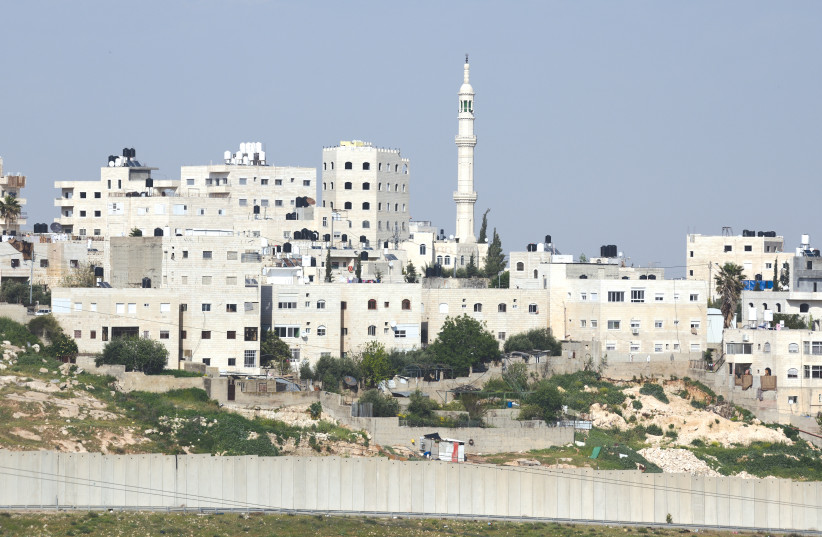The latest wave of terrorism in eastern Jerusalem is similar to previous instances in recent years, particularly in Jerusalem. These attacks are committed by lone terrorists who are not connected to any specific terrorist organization, although some have been linked to supporting such groups. Unlike past waves of terrorism, such as the knife attacks in 2015 or various car-ramming attacks, this time firearms are being utilized more frequently.
The current surge of violence in eastern Jerusalem coincides with and in some cases, follows the ongoing security tensions in northern Samaria, particularly in the Jenin and Nablus regions, which have persisted for over a year and a half. The death of nine terrorists during a security operation in Jenin sparked widespread outrage in the Palestinian territories and led to retaliatory actions.
There is a clear link between the events in Judea and Samaria and other areas, and it is crucial to break this connection as soon as possible. Israel is working to sever the connection between Judea and Samaria and between Jerusalem and the Gaza Strip, despite attempts by Hamas and Islamic Jihad leaders in the Gaza Strip to maintain it.
The differences in legality, political strategy and even operational approach between the two areas require Israel to adopt distinct measures to curb the current wave of terrorism. Legally, Israel is recognized as the sovereign entity in eastern Jerusalem and its residents hold blue ID cards (citizenship), which restricts their ability to tackle terrorism effectively. This requires innovative solutions to deal with terrorist threats. The primary agencies responsible for counter-terrorism in eastern Jerusalem are mainly the Israel Police, the Israel Border Police (Magav) and the newly formed National Guard.
Politically and strategically, Israel aims to integrate its citizens and residents into the economy and society and to promote a sense of Israelization in the area. This policy stems from the fact that there are no plans to relinquish sovereignty over eastern Jerusalem in the near future. This limits the possibility of a solely broad military operation, which could worsen the situation.

Operationally, citizens with ID cards can move freely within and outside of Jerusalem, making it easier for them to carry out terrorism compared to terrorists from Judea and Samaria who must first infiltrate Israel.
Therefore, a sustained and comprehensive effort is needed in eastern Jerusalem that blends military actions with other soft measures. Israel’s strategy towards terrorism in eastern Jerusalem must shift from defense to offense and from reactive to proactive. Defeating terrorism in eastern Jerusalem is impossible without asserting effective governance by Israel.
How can Israel defeat terrorism in east Jerusalem?
The primary objective during this wave of terrorism is to quell the opposition and deter imitation of terrorist attacks from Samaria to eastern Jerusalem through significant coercive actions. The more effectively Israel prevents terrorist attacks with minimal Israeli casualties and eliminates terrorists, the more the escalation will decline and fade.
Israel must streamline the process for the demolition of terrorists’ homes after attacks by reducing bureaucracy and legal delays. To increase deterrence and complement home demolition, the Israeli government should implement a law for the deportation of terrorists’ immediate families.
Furthermore, the area must be significantly fortified with security forces and the National Guard. In this context, Israel must hasten the establishment of the National Guard, equipping it with ample skilled personnel and granting it wide-ranging policing and paramilitary powers. A task force relying solely on volunteers and limited powers, as initially envisioned for the National Guard, is unlikely to bring about substantial change in the field.
To increase control, Israel must undertake a massive operation to confiscate weapons from every home and neighborhood in eastern Jerusalem. This will increase the actual governance of the state in the region and decrease the ability of terrorism supporters to harm Jewish citizens. The operation should be carried out with the cooperation of the Israel Police, Israel Border Police, Israel Security Agency (Shin Bet), and the National Guard, along with military support.
Israel must simultaneously increase its intelligence efforts on social media through advanced AI systems to identify and prevent terrorist activities. It must also demand social media companies and platforms take stricter measures against incitement. If necessary, legislation should be enacted to support this action.
The writer has a Ph.D. in political studies. He is a military strategy and national security expert, and a researcher at the Jerusalem Institute for Strategy and Security (JISS).
